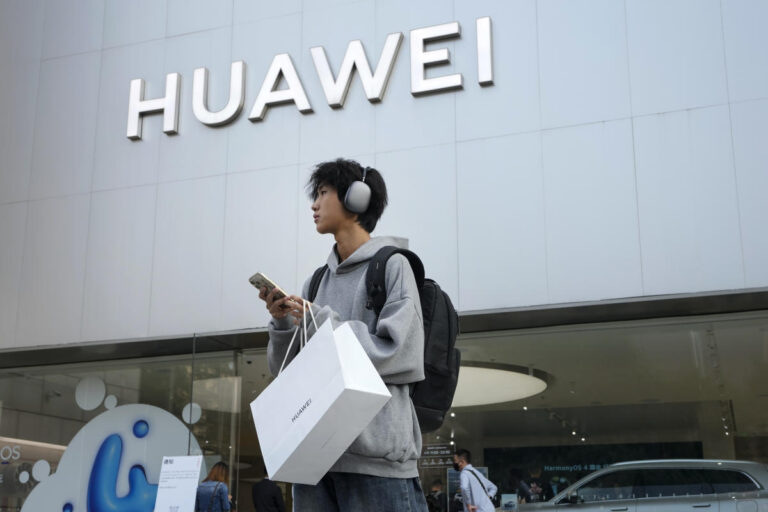HONG KONG (AP) — Chinese telecoms equipment company Huawei reported more than doubling its profits last year as its cloud and digital businesses grew despite U.S. sanctions.
The Shenzhen-based company reported net profit of 87 billion yuan ($12 billion) due to strong sales and improved product portfolio. Sales rose nearly 10% year-on-year to 704.2 billion yuan ($97.4 billion).
Huawei Rotating Chairman Ken Hu said the company's numbers were in line with expectations.
“We have been through a lot in the past few years. But by taking on one challenge after another, we have been able to grow,” Hu said.
Huawei also said it was profiting from “gains from the sale of certain businesses.” He did not say which businesses were sold.
Huawei, one of China's first global technology brands, has been caught up in the US-China conflict over technology and security.
The United States has barred American companies from doing business with Huawei, cut off access to computer chips for smartphones and software such as Google services, and blocked Huawei from selling telecommunications equipment to American customers.
The US government claims that Huawei poses a threat to US national security. Huawei denies it.
Huawei is refocusing its business on cloud computing services and helping the industry transition to more digital operations.
Revenue from the cloud computing business increased by about 22% from the previous year to 55.3 billion yuan ($7.7 billion) in 2023. Sales of the Digital Power business increased by 3.5%. Automotive service-related sales more than doubled.
Huawei's consumer division, which sells smartphones and other devices, recorded a 17.3% revenue increase in 2023.
Last year, Huawei launched its Mate 60 line of high-end smartphones equipped with advanced chips manufactured jointly with China's Semiconductor Manufacturing International Corporation (SMIC).
“In 2024, we will expand our presence in the high-end market by working with ecosystem partners around the world to bring more innovative products and services to consumers around the world,” the company said in a statement to The Associated Press. We will further expand this.”
The launch of the Mate 60 sparked speculation that Huawei and China could produce 5G chips.
Later, US lawmakers accused SMIC of violating US sanctions by supplying chips to Huawei. Taiwan has also launched investigations into four local companies over reports that they cooperated in the development of Huawei chips. Some companies said they provide wastewater and environmental protection services unrelated to critical technology.
Huawei is one of the world's largest spenders on research and development. In 2023, it invested 164.7 billion yuan ($22.8 billion) in research and development, accounting for almost a quarter of its annual revenue. Just over half of Huawei's 207,000 employees work in research and development.


